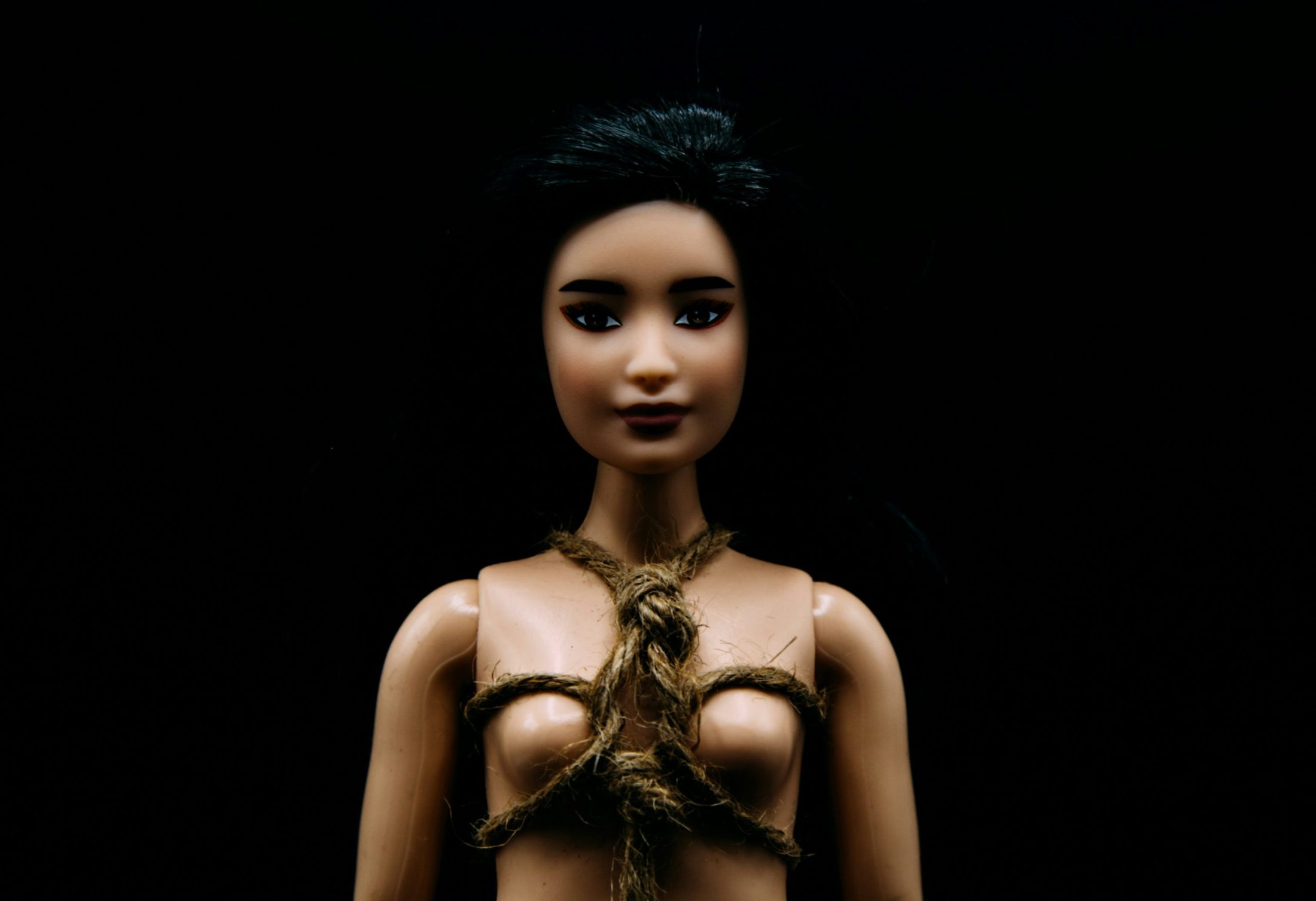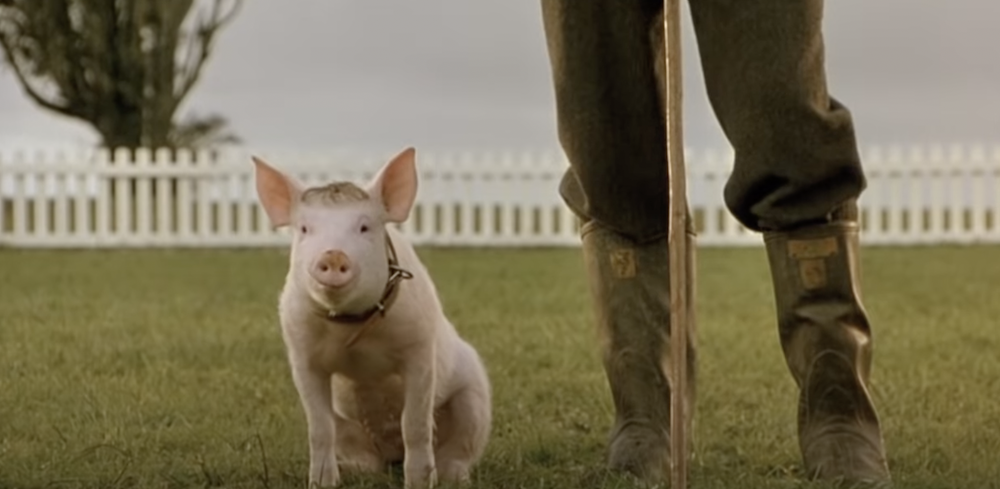Books & Culture
I Was a Contestant On an Early Aughts Reality Show So I Could Be The Hero of My Story
Instead I was cast as the villain whose feminism betrayed the integrity of the show

In 2005, during the dawn of reality television and before social media transformed these experiments into income-generators for future influencers, I was a participant on a PBS reality television show called Texas Ranch House. Like all reality television shows, this one had its own uniquely unhinged premise: 15 strangers (or relative-strangers—five participants comprised a real-life family) “time-traveled” to 1867 Texas, where we ran a cattle ranch for three months as though it were the 19th century. I went to Texas hoping to be a ranch hand, but instead arrived to discover that I—a queer, Jewish, feminist, horse lover—had been cast as the maid (the “girl of all work”) for a white born-again Christian-fundamentalist family, cast to own the ranch. Spoiler alert: throughout the summer, I managed to transcend rank, gender, and the conservative cast I was stuck with and ended the show as a cowboy, participating in the epic cattle drive across the West Texas desert. If the show were Survivor, I would have won.
Still, it was 2005 and my ambitions were derided. Over the course of the summer, the other participants grew to hate me and constantly chastised me for betraying the integrity of the experiment. Later, after the show aired, similar barbs were thrown at me through blogs and in the comments section of online articles. The constant refrain said I should have stayed in my lane, remained the maid, and kept my mouth shut. My “feminism” was seen as contrary to the 19th century, where women were being re-written as quiet and demure. I was 25-years-old and went on the show not to become a famous influencer, but to have an experience. As a life-long horse girl obsessed with fantasies of the Wild West, I wanted to be a cowgirl, I wanted to enter the romantic fantasy of my youth. In doing so, I was also recast as betraying the integrity of the show.
Because of this experience, I have mostly avoided the genre of reality television. It hurts too much to watch these shows, knowing what I know about their creation and production. But like so many queers, my partner and I watched The Ultimatum: Queer Love. How could we not? It seemed almost requisite, especially during Pride month. Everyone was talking about it and we wanted in on the discourse. We cringed through eight episodes with equal parts horror, boredom, and obsession.
Real people have been flattened, stripped of nuance and context, and constructed into character.
I’m trained as a cultural anthropologist and so any deep-dive into character motivation based on social factors, community construction, and environmental impact is my bread—and vegan!—butter. While I have mostly steered clear of the social media analyses of individuals-as-character, I’ve been unable to avoid the top layer of archetypal constructions occurring online: Vanessa or Lexi or Xander as the villains; Lexi or Xander or Mal as the heroes; Tiff and Mildred as abusers; Aussie as most in need of therapy (although EVERYONE should have gone to therapy/couples counseling in place of entering into this reality television nightmare experience); Sam as the most self-aware; etc. Real people have been flattened, stripped of nuance and context, and constructed into character. I know all about it because I have lived through it.
One of the things I found most fascinating (and disturbing) about the show was how Vanessa was so easily slotted into the “villain” category, almost entirely based upon Lexi’s framing of her character. And while it’s true that Vanessa’s earlier chaotic behavior was discomforting, she also showed the most growth, while still being bullied by almost everyone on the show. Because of the group behavior—not accepting her unnecessary but very heart-felt apology, ignoring or chastising her at group gatherings, etc—the audience was encouraged to hate Vanessa as much as Lexi and Yoly did. But the thing is, we—as an audience—never truly see the “horrific” behavior Vanessa was said to exhibit. She made a few mistakes, said a few cringe-worthy and confusing things, and otherwise acted like an awkward, extroverted party girl. But—to quote Carmen Maria Machado in her excellent, hilarious, and spot-on analysis of the show on her Substack “Cup of Stars” (to which you should subscribe)—“when Vanessa let slip that she was taking the premise of a show a bit less seriously than the others, Lexi acted like Vanessa had exsanguinated a puppy. After that, it was war.”
Listen, I get it—it’s fun to hate fictionalized versions of real people on reality television—it allows us to contextualize our own behavior in contrast to what we are seeing, it allows us to feel morally superior as we workshop how we might instead react to the action we see on screen. But most discussion about this conflict focuses on individual behavior and reaction and ignores the structural pieces at play. What do the participants know? What are they being told? What are the rules of their experience and how does sloppy editing and the actions of a production team play into the constructed world we encounter as viewers?
I was slightly annoying and, at times, unself-aware, but I was never evil, manipulative, cruel, or controlling.
Over the past three years, I have written a memoir about my time on Texas Ranch House, not just exploring my own experience on the show, but also interrogating PBS’s construction of a whitewashed 19th-century history, invested in white supremacist narratives of the past. My partner, having read endless drafts of the memoir, began watching the show a few months ago. Over and over, they remarked to me “Everyone talks about how much they hate you but none of the footage shows you doing anything bad!” While I had been writing about my experience for years by this point, their comment hit me in ways I hadn’t previously considered. It’s true. I never do anything really bad, either on screen or off. Still, I was almost universally disliked, and often hated, by most of the other participants.
I admit I was guilty of being 25-years-old. I was slightly annoying and, at times, unself-aware, but I was never evil, manipulative, cruel, or controlling. Instead, I got in the way of other participants aspiring for Main Character ™ status and slowly slipped into that role myself. In order to transform me from Main Character ™ to Villain ™ the other participants accused me on camera of not taking the experiment seriously and not playing by the rules. When viewers came to the show months later, edited from three months of footage into 8 hours of television, that became their refrain, too. I was not acting like a “woman of the 19th century.” I was “allowing my 21st century sensibilities to get in the way.” This was my crime—disobeying the rules. This is how I became a Villain ™.
But those weren’t the rules, at least not the rules I was given. When I was cast on the show, I was very explicitly told only one rule—“Be your 21st century self, but with 19th century tools and technology.” This was it. I was constantly reminded that I hadn’t signed up for an acting job, I wasn’t supposed to pretend to be anyone other than who I was. It was fine if I was a “feminist,” but absolutely no tampons. I took this seriously, although I did eventually manage to get tampons, perhaps my one true crime.
However, this rule—what I would argue is a fundamental rule—was never once clarified in the footage of the show. Such an omission, I believe, is intentional. If the viewers were unaware of our rules, then our personalities could be edited into characters, especially characters that broke the social contract. I was a maid who became a cowboy. Instead of seeing this as a necessary and reasonable transformation, I was cast as an evil feminist (thank goodness I was not out as queer on the show) who refused to take the experiment seriously.
There is a reason these shows are so ubiquitous. Reality television is cheap.
The Ultimatum: Queer Love is not a good show. It’s incredibly boring, and when it’s not boring, it’s stressful and distressing. None of the “characters” are fully fleshed out human beings, no real conversations are present, no true motivations are revealed. It’s exceptionally dull. It’s badly edited. Honestly, I couldn’t wait until it was over. But the way viewers were manipulated into thinking they knew the characters was startling and disturbing. We were encouraged to make judgments but none of us knew the rules. None of us knew what the participants knew. And none of us knew what the director was asking them during the interview segments, as we only saw them talking, crying, and making accusations.
However, there’s real work being done in the watching, if you pay attention. As I watched the episodes, I urged myself to ask bigger questions about the responsibility of reality television production and how audiences are crafted as intentionally and manipulatively as participants are. In particular, viewers of The Ultimatum: Queer Love are not given insights into the rules of the world we are entering into, we are simply given the participants’ edited and manipulated versions of these rules, as related to the camera and each other after far too many alcoholic beverages. Viewers are asked to trust participants and participants are asked to trust each other. But the real players here—absent from both the footage and the Discourse ™—are the production team, who have both constructed these worlds and manipulated their realities. Why are participants held accountable for their individual behaviors and not the producers, directors, and editors in charge? What can we understand about our larger neoliberal social reality if we contextualize shows like The Ultimatum: Queer Love?
There is a reason these shows are so ubiquitous. Reality television is cheap. At least, relatively. Scripted television shows are beholden to the Screen Actors Guild (SAG), the American Labor Union that regulates what performers are paid; how much time off they receive; and other forms of protection against exploitation. Reality television participants are not protected by a union – they do not have to get paid; they do not have to have time off; they are not protected in any way. They can be given a few thousand dollars, they can be given nothing. They can be promised $1 million if they win a competition, they can be given nothing if they lose.
In 2005, when I was on Texas Ranch House, an average scripted television episode cost approximately $3-6 million to make. Now, almost 20 years later, scripted episodes can cost $30 million per episode. In contrast, an episode of reality television today costs approximately $100,000-500,000 per episode. Cheap, at least relatively.
When scripted television is in a labor or financial crisis (such as now, with writers on strike), reality television flourishes. In 2005, PBS had already made two other house shows—Colonial House (set in 17th century Maine) and Frontier House (set in 1880s Montana). These shows were inspired by BBC House shows, produced by Wall to Wall Television (who also produced the American versions). These days, reality television makes up 60% of available television content. Reality television manipulates the market. Writers are cut out of the equation, concerns over AI are non-existent. The formula is simple— find a group of participants, take away everything that makes them feel safe and in control of their world, and then watch them explode.
During my time on Texas Ranch House, I learned a lot about how both participants and audience members were manipulated by the production team. For example, once a week, each participant would be whisked away from the main set—a small ranch compound in the middle of a 9,000 acre stretch of land—and taken to a small constructed set on the edge of the property. There, we were given a break from our grueling labor. We were actually required to work as though it was the 19th century, and so I spent my days as a maid feeding and milking cows and goats, cooking three meals over an open fire, making cheese and tortillas from scratch, keeping a fire going in 100 degree heat, and lugging buckets of water back and forth from the well, to name a few tasks. Interview day was a treat. I could sit in a comfortable chair in the shade. I rested. I was offered Gatorade (which I never accepted, lest I begin to think the crew were my allies). The crew—unlike the other participants—were seemingly kind to me. They asked me how I was. They told me how great I was doing. They lavished me with praise for my work and told me how they believed I was the best person, the smartest, the most engaged. I now know a term for this—“love bombing”—but at the time, I simply understood it as manipulation.
Once they believed me to be relaxed (I was not) they turned on the cameras. Questions usually began with the Director telling me something that someone else said about me (always negative) and then asking me—on camera—to react to it. For weeks I told myself only to react to things I personally experienced. I tried so hard to commit to that goal. It was one of the hardest things I’ve ever done and I didn’t always succeed. But I tried. I’m proud of that 25-year-old version of me. She did the best she could in an absolutely impossible situation.
I don’t know the context of The Ultimatum: Queer Love but here’s why it was so hard for me in 2005:
For weeks I told myself only to react to things I personally experienced.
For three months, I was allowed absolutely no contact with anyone off the set. I couldn’t call my parents. I couldn’t see my best friend. I had no knowledge of what was going on off the ranch, in the world. I was lonelier and more isolated than I have ever been—before, or since. And none of the participants liked me. The latter was based on both intentional casting (me, cast as the maid for fundamentalist Christians who were homophobic and racist? Wanting to be a cowboy alongside a group of misogynist men? How would that not end badly?) and the manipulation of the production team, and yet they were also the people trying to turn me into their ally. As they created more and more isolation for me, they simultaneously built a world where I could—if I chose to—confide in them. They pretended to be my friends. They pretended to be on my side.
While The Ultimatum: Queer Love seems to be set in San Diego and participants appear to have contact with some friends and family (we see certain people appear on the show for advice, support, and tough love), viewers are given no information about what participants are allowed and not allowed to do. We learn nothing of their history. Where are they from? Where have they been living? Can they see their community? Are they receiving support? How social can they be outside these constructed worlds? When we see them in interview contexts, we have no idea what questions have led to their answers. When we see them in social “happy hours,” we have no idea what fictions the production crew has told them to influence their reactions to each other. We are led to believe their hatreds and resentments are based on reactions to each other but we have no idea who is pulling the strings, and how.
When I was on Texas Ranch House, one of the main goals of the experiment was for the ranch hands to round up enough cattle for the ranch to be profitable and survive another year. Every day, the men cast as cowboys rode their horses out onto the open range, searching for these elusive creatures. Somedays, they came home with five or ten or twenty cows. Most days they came home with none. On those more common days, the ranch owner would chastise the men for not working hard enough and the entire ranch community would be encouraged to stress out over whether there would be enough cattle for the cattle drive and whether the herd would turn a profit. It was only weeks into the experiment that we learned—accidentally—that the production team was in charge of the herd. Somedays, they would let a handful of cattle out of the pens situated on the edge of the ranch. Other days, no cattle would be released. The production team created the conditions of our existence but when we were frustrated with these conditions, we simply turned on each other. The audience never knew the rules of our world. We barely knew them ourselves.
The audience never knew the rules of our world. We barely knew them ourselves.
It’s tempting to dismiss both of these shows, especially The Ultimatum: Queer Love, as silly, vapid, boring entertainment. We can do that. In many ways the stakes are very low. But I also believe these shows warn us of the dangers of our current moment. Our lives are unaffordable. For those of us with creative aspirations, there are barely any jobs in academia, the arts, and publishing. The jobs that do exist barely pay us enough to survive. We live in a country with abysmal public transportation but electric cars are unaffordable for most people and the price of gasoline is staggering. Student loan payments are about to resume, and for most of us still in debt, this will be financially devastating. We are still living through a global pandemic but masking and vaccinations have become optional and PCR tests are no longer free. The list goes on—it is a hard time to live, and many of us are barely scraping by. So often we are presented with two terrible choices and then punished for making the wrong decision. Despite the overwhelming structural violence we are presented with every day (in addition to overt violence, particularly against Black, Indigenous, and trans people, but the list of violences is much longer than that), the fantasy of America still demands individual responsibility. We fight with each other instead of the System ™. We are so far from revolution.
At 25-years-old, I was too scared to suggest to the other participants of Texas Ranch House that we rise up against the crew and unite against our common oppressors, the production team pulling our strings. And anyway, I was still convinced—through stubborn determination and the naïvité of youth—that I could become the hero of my own story all on my own. And while I did rise to Main Character ™ status, I also was cast as the Villain ™ by both the other participants and future viewers. After all, these shows do not survive without conflict and the conflict of these shows cannot be structural. And while I do not believe reality television participants are tasked with teaching viewers about structural inequality, I do think we can use them as a vehicle to ask questions about how our worlds are built and enforced through these formulations. What are the rules of these worlds? How are they created and enforced? What do we know and what do we think we know about how individuals act within the confines of these structures? And how does that teach us to tear these structures down, so we can build each other up?








